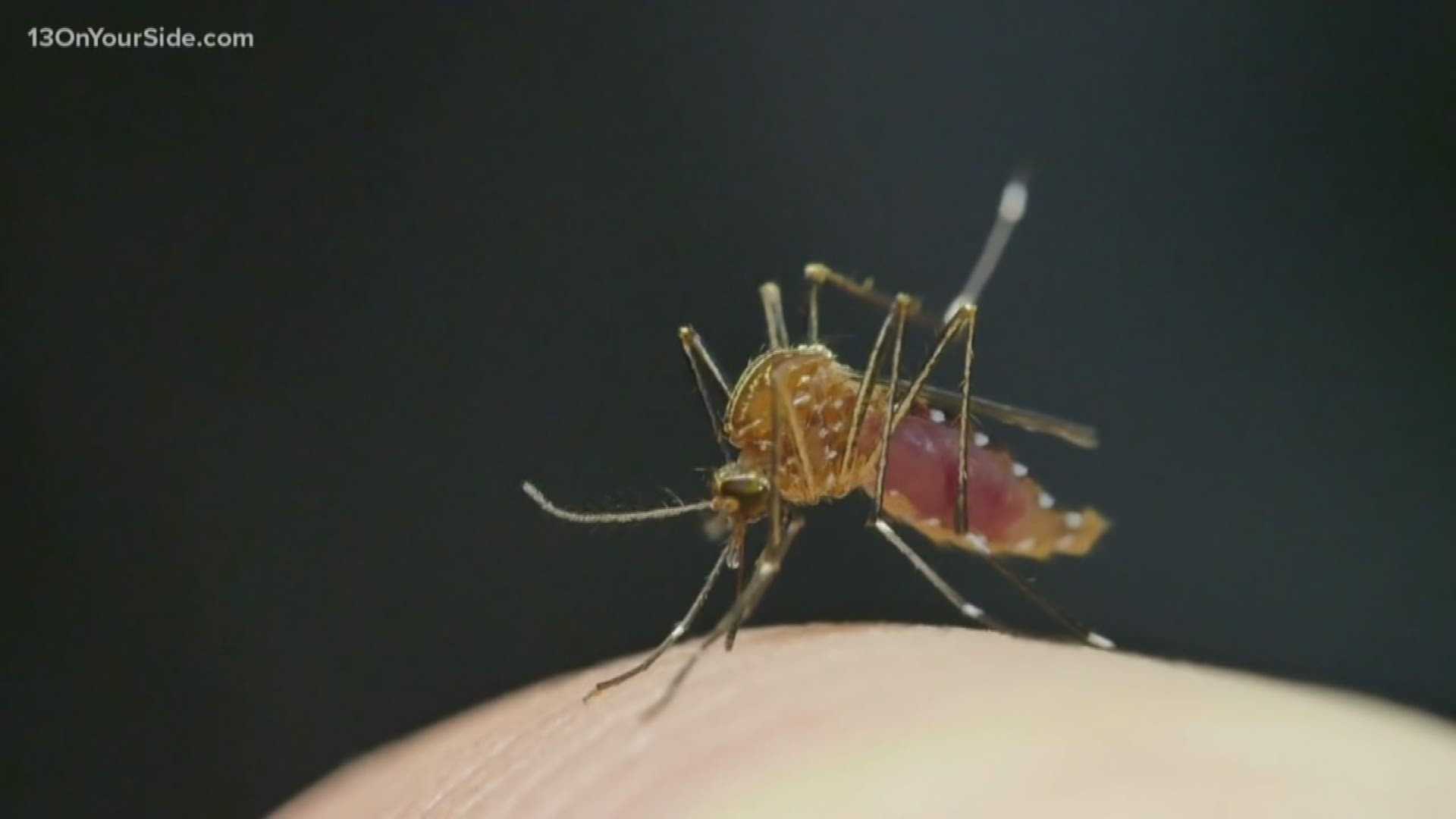NEWAYGO, Mich. — The Michigan Department of Health and Human Services (MDHHS) Bureau of Laboratories and the Michigan State University Veterinary Diagnostic Laboratory has recently identified Eastern Equine Encephalitis (EEE) in a dead horse in Newaygo County.
According to a press release from the District Health Department #10 (DHD#10), this is the first case of EEE in a horse in Newaygo County in more than 10 years and the second since 1942. To date, no case of human EEE has been found in Newaygo County since this disease was first tracked in humans in 1980.
To date this year, no human cases have been reported in Newaygo County or any county within the health department's ten-county jurisdiction.
Eight cases of EEE have been confirmed in residents of Barry, Berrien, Calhoun, Cass, Kalamazoo, and Van Buren counties, including three deaths. As of today, 27 animals have been diagnosed with EEE in 13 counties. Two wolf pups at the Binder Park Zoo in Battle Creek died from EEE.
At this time, officials feel the risk of EEE in humans in Newaygo County is low. DHD#10 does not believe it is necessary to reschedule or change outdoor events. However, out of an abundance of caution, event organizers, parents and coaches could consider postponing, rescheduling or cancelling outdoor activities occurring at or after dusk, particularly activities that involve children. This would include events such as late evening sports practices or games or outdoor music practices until the first hard frost of the year.
New legislation has been introduced in Lansing that would help Michigan community swat back at the concern over the mosquito-borne virus. One bill would allow townships to pursue a special tax for mosquito abatement while a second bill would allow for special assessment districts.
Signs and Symptoms
EEE is one of the most dangerous mosquito-borne diseases in the United States, with a 33 percent fatality rate in people who become ill. People can be infected with EEE from the bite of a mosquito carrying the viruses. Persons younger than age 15 and over age 50 are at greatest risk of severe disease following infection.
Signs of EEE include the sudden onset of fever, chills, body and joint aches which can progress to a severe encephalitis, resulting in headache, disorientation, tremors, seizures and paralysis. Permanent brain damage, coma and death may also occur in some cases. Anyone experiencing these symptoms should visit their physician’s office.
RELATED VIDEO:
MORE on 13 ON YOUR SIDE:
►Make it easy to keep up to date with more stories like this. Download the 13 ON YOUR SIDE app now.
Have a news tip? Email news@13onyourside.com, visit our Facebook page or Twitter. Subscribe to our YouTube channel.


